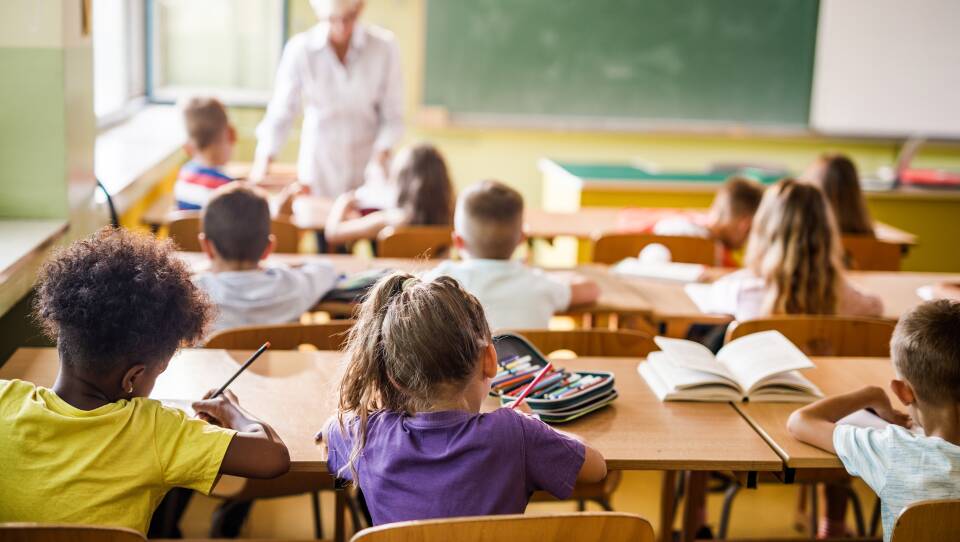Public school districts in many Massachusetts communities are responding to concerns over containing Coronavirus by telling students to stay home.
"There's mounting pressure on many superintendents to take some action,” said Tom Scott, Executive Director of the Massachusetts Association of School Superintendents. “They're talking to one another. They're trying to work through the Department of Education and Department of Public Health to try to find some advisories that would help them. But ultimately they're going to have to make those decisions.”
Scott said as superintendents look for help with making the decision, they aren't getting much direction from the state.
"In many cases, we're being advised to talk to our local boards of health in making some of these decisions," he said. "In some cases it's a very effective way of doing it. In other cases the resources at the local department of public health in the local areas may be insufficient."
Scott added that superintendents have to weigh the balance between the health of students and the responsibility to educate them. And, he said superintendents feel the need to err on the side of caution.
In a joint statement, the superintendents of Arlington, Bedford, Belmont, Burlington, Lexington, and Winchester said they can have a greater impact on public health and safety by acting together.
"Many in our area have been particularly impacted due to our families who have a greater number of presumptive positive cases in the area," the statement read.
The statement said the closure could be extended or shortened based on directions from the state.
"We do this out of an abundance of caution, particularly out of sensitivity to families and staff who have underlying conditions that make them more vulnerable to complications should they become infected," it read. "We also do not do this lightly, as we know that this will impose a hardship on families who do not have childcare options."
Newton Superintendent David Fleishman told WGBH News that canceling school wasn't a decision he took lightly.
"Yet the information that we've received in the last 12 to 24 hours, and in talking to our health officials, they felt it was time," he said. "And obviously, school districts close very reluctantly because it has an incredible impact on families and children. And so it has incredible societal costs. I think closing schools is one of the most complex decisions given how much children depend on us for academics, for social and emotional well-being, for food and nutrition, for educational materials. There's significant loss when you closed for an extended period of time. But this is a very unique situation and hopefully we won't be closed for too long."
The closures come as some public health experts question whether that’s the right move to protect school communities.
In an opinion piece in Tuesday’s New York Times, Dr. Jennifer Nuzzo of the Johns Hopkins Center for Health Security argues there’s no evidence school closures will slow the Coronavirus outbreak.
“If schools remain open, officials could enact measures to limit any potential spread among children and staff,” Dr. Nuzzo writes. “All students could be checked daily for fever, a possible sign of Covid-19 infection. Even more attention should be given to hand washing and reminding children not to touch their faces. Children should be taught to sneeze into their sleeves. Schools can consider changing seating arrangements to keep children six feet apart. As the weather warms, lessons can be taken outside, if possible.”
In a call with reporters on Wednesday, Dr. Marc Lipsitch, a professor of epidemiology at the Harvard T.H. Chan School of Public Health, emphasized the social services that kids won't have access to as schools are closed.
“What's left of the American welfare state is so much channeled through schools that closing schools in the United States is a bigger decision than almost anywhere else,” Dr. Lipsitch said. “We have lots of nutrition for children, plus mental health services. And then … there's the problem that you lose essential workers from the workforce because they're taking care of their kids.”
But, Dr. Lipsitch said closing schools could do some good.
“If you were just going for disease control, you would close the schools because children do get infected,” he said.
Dr. Lipsitch cited one study of the virus in China that suggested children get infected at the same rate as adults, but with milder symptoms. He said it’s not yet clear how much children transmit the disease to others.
“And so it's really an agonizing choice between two bad options that people are going to make,” he said.
School districts seeing closures include:
— Arlington - closed at least through March 27
— Bedford - closed at least through March 27
— Belmont - closed at least through March 27
— Boston – just Eliot School in the South End closed through March 19
— Brookline - closed at least through March 27
— Burlington - closed at least through March 27
— Cambridge - closed at least through March 27
— Everett – closed through April 27
— Lexington - closed at least through March 27
— Lynn - closed March 13
— Newton - closed at least through March 20
— Salem – closed March 13
— Somerville – closed at least through March 27
— Wellesley – closed for approximately two weeks
— Winchester - closed at least through March 27
— Worcester - closed March 13
NOTE: These are just some of the districts that are canceling classes. Check with your own community to see if schools in your area will be closed.





